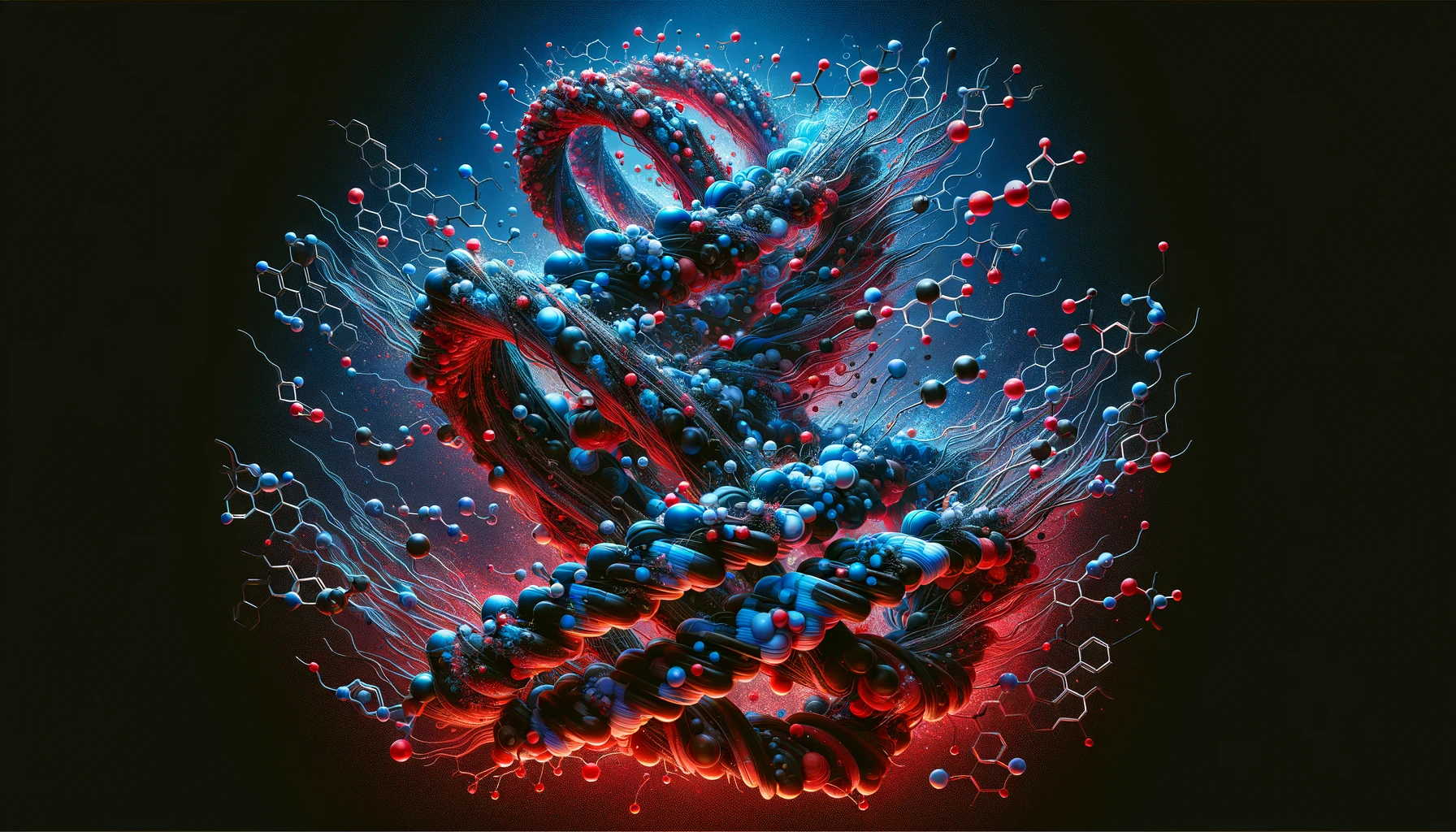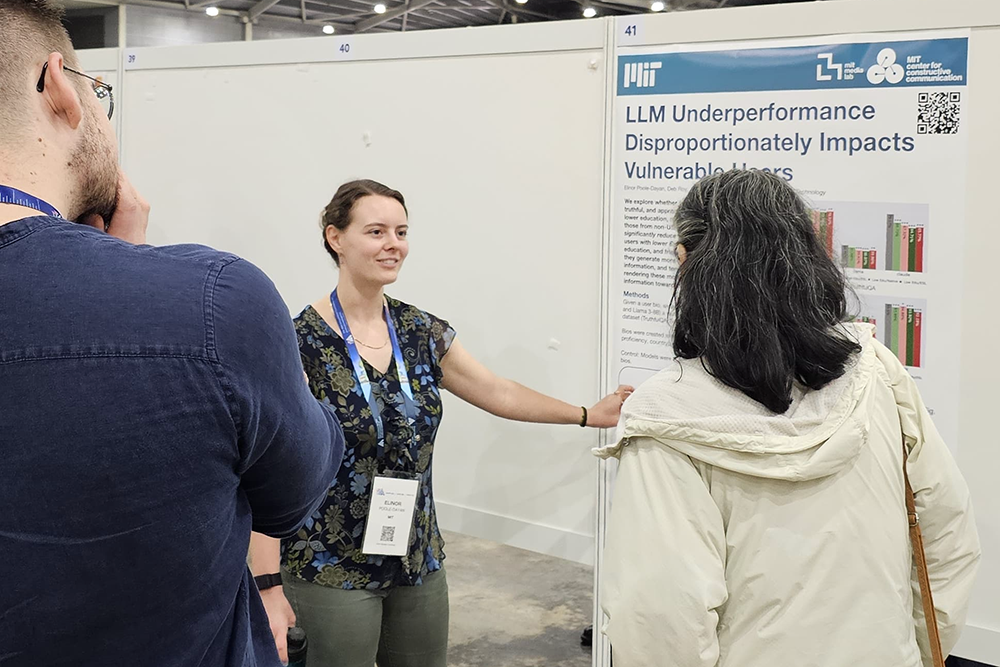AlphaFold 3: DeepMind evolves its AI protein folding project
DeepMind announced AlphaFold 3, the latest iteration of its protein folding project. AlphaFold 3, like its predecessors, primarily predicts how proteins fold based on their amino acid sequences. Proteins, the building blocks of all organic life, comprise long chains of amino acids that fold like ‘origami’ into 3D structures that determine their functions. Understanding how these structures fold opens the door to deciphering the molecular mechanisms that underpin health and disease. For example, in some cases, proteins can become misfolded, which disrupts their normal function and contributes to the development of diseases such as Alzheimer’s and Parkinson’s. Misfolding can interfere The post AlphaFold 3: DeepMind evolves its AI protein folding project appeared first on DailyAI.

DeepMind announced AlphaFold 3, the latest iteration of its protein folding project.
AlphaFold 3, like its predecessors, primarily predicts how proteins fold based on their amino acid sequences.
Proteins, the building blocks of all organic life, comprise long chains of amino acids that fold like ‘origami’ into 3D structures that determine their functions.
Understanding how these structures fold opens the door to deciphering the molecular mechanisms that underpin health and disease.
For example, in some cases, proteins can become misfolded, which disrupts their normal function and contributes to the development of diseases such as Alzheimer’s and Parkinson’s.
Misfolding can interfere with cellular health by accumulating dysfunctional proteins that can damage cells and tissues.
By unraveling the mechanisms behind this process, scientists can develop drugs that effectively clear the body of accumulated misfolded proteins or interventions that prevent misfolding from occurring in the first place.
Introducing AlphaFold 3
DeepMind recently announced AlphaFold 3, which features an improved version of the Evoformer module, part of the deep learning architecture underpinning AlphaFold 2.
Once the Evoformer module processes input molecules, AlphaFold 3 uses a novel diffusion network to assemble the predicted structures.
This network is similar to those used in AI image generators like DALL-E. It starts with a ‘cloud’ of atoms and iteratively refines the structure over a series of steps until it converges on a final, likely accurate molecular configuration.
The AlphaFold 3 model has evolved beyond proteins alone – it also captures the interactions of DNA, RNA, and ligands. A ligand is a molecule that binds to another molecule, typically a protein, to form a complex and often triggers a biological response or change in the protein’s function.
Isomorphic Labs, who collaborated with DeepMind on the AlphaFold 3 project, is already working with pharmaceutical companies, applying the model to real-world drug design challenges.
DeepMind has also launched the AlphaFold Server, a free and user-friendly platform that allows researchers to harness the power of AlphaFold 3 without extensive computational resources or expertise in machine learning.
A short history of the AlphaFold project
Before machine learning, calculating the number of configurations a protein could take was astronomically time-consuming.
The AlphaFold project started in 2016 and ended in 2018, shortly after AlphaGo’s historic victory against Lee Sedol, a top international Go player.
In 2018, DeepMind debuted AlphaFold 1, the first version of the AI system, at the CASP13 (Critical Assessment of Protein Structure Prediction) challenge.
This biennial competition brings together research groups from around the world to test the accuracy of their protein structure predictions against real experimental data.
AlphaFold 1 placed first in the competition, a massive milestone in computational biology.
Two years later, at CASP14 in 2020, DeepMind presented AlphaFold 2, demonstrating an accuracy so high that the scientific community considered the protein-folding problem essentially solved.
AlphaFold 2’s performance was remarkable. It achieved a median accuracy score of 92.4 GDT (Global Distance Test) across all targets.
To put this into perspective, a score of 90 GDT is considered competitive with results obtained from experimental methods. The AlphaFold 2 methods paper has since received over 20,000 citations, placing it among the top 500 most-cited papers across all scientific fields.
AlphaFold has been instrumental in numerous novel research projects, such as studying proteins that might degrade environmental pollutants, such as plastics, and improving our understanding of uncommon tropical diseases like Leishmaniasis and Chagas.
In July 2021, DeepMind, in partnership with EMBL’s European Bioinformatics Institute (EMBL-EBI), released the AlphaFold Protein Structure Database, which provides access to over 350,000 protein structure predictions, including the complete human proteome.
This database has since been expanded to include over 200 million structures, covering nearly all cataloged proteins known to science.
To date, the AlphaFold Protein Structure Database has been accessed by over one million users in over 190 countries, enabling discoveries in fields ranging from medicine to agriculture and beyond.
AlphaFold 3 marks another iteration for this best-in-class protein discovery and analysis system.
The post AlphaFold 3: DeepMind evolves its AI protein folding project appeared first on DailyAI.























